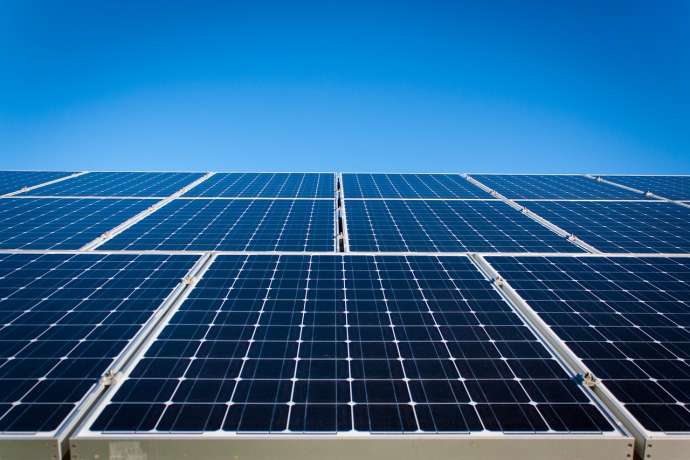STA, 15 February 2019 - A photovoltaic array in Jesenice has become the first solar power plant in Slovenia installed on an apartment block. The EUR 36,400 installation operated by energy group GEN-I should pay for itself in seven years and GEN-I expects more such projects to follow given recent legislative changes.
After as many as 2,000 rooftop solar arrays were installed in Slovenia in the last couple of years, legislation was passed last year allowing apartment buildings, not just single-family homes, to have photovoltaic panels installed.
But the process is not easy. "When we first contacted the residents, we though our chances were slim because the law is not very conducive of such projects. But the residents were incredibly persistent. We gladly followed them and after six months we have the first such solar plant in Slovenia running," GEN-I CEO Robert Golob told the press on Friday.
According to the building's representative Brane Zajović, all residents had to give their consent. In the building with 23 apartments, this meant 55 people.
"Our main goal was to cut our monthly utility costs, which are rising by the year," Zajović said, noting that they had installed a heat pump at the building six years ago, which reduced annual heating costs from EUR 11,000 to EUR 3,000.
In the next seven years, the residents will be paying off the EUR 36,400 investment in the solar power plant in monthly instalments matching their electricity bills so far. After that, they will have no electricity bills, Golob said, noting that the power plant's life span was 30 years.
The photovoltaic solar panels on the building will produce 37,000 kilowatt hours of electricity a year.
Although Jesenice does not get a lot of sunshine in the winter, the plant will be only 5% less efficient than it would be in Kranj and 15% less efficient than it would be in the coastal town of Koper, Golob said.
He expects other buildings to follow the Jesenice example, especially since legislative changes are under way to speed up the permit approval process from six months to one month.
Hinko Šolinc of the Infrastructure Ministry said the changes of the relevant decrees were expected to enter into force in March. They will not only facilitate the installation of rooftop solar but also allow buildings in the vicinity of a solar power plant to use surplus power.






